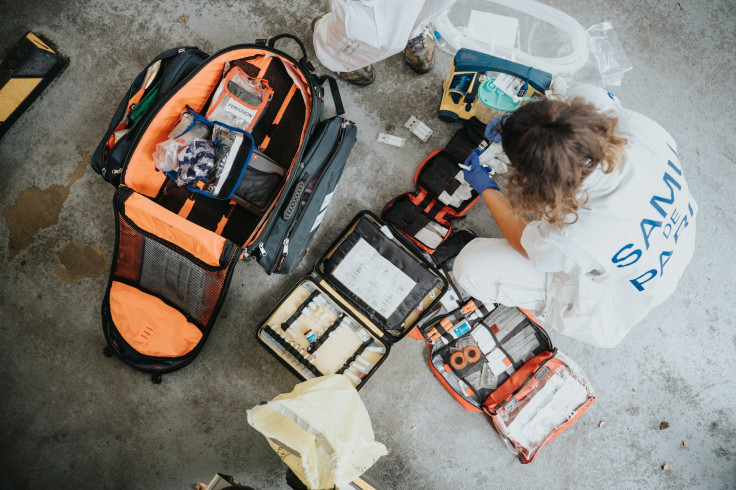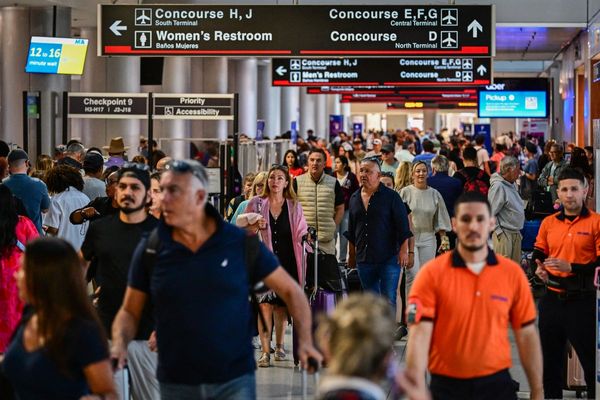
A peculiar alertness is being exhibited by Americans in the wake of conflict in Middle East and Ukraine wherein survival and safety kits are being procured at a scale.
Perhaps they're not preparing for the end of the world but they're simply learning to live with uncertainty, one survival kit at a time.
Americans are worried that these global conflicts will be much closer to them–and that it's easier to be prepared than never. The numbers tell the tale: Google searches for 'nuclear fallout' spike like heartbeats on a monitor. Amazon's algorithms note the surge in gas masks and solar torches.
How Prevalent Are Survival Kits in the US Now
Americans turned to Google in droves, driving up searches for terms like 'nuclear fallout' and 'survival kit' to their highest point since Russia's Ukraine invasion in early 2022.
Amazon has also seen a similar pattern: over the past month, sales and searches for gas masks, first aid supplies, and solar flashlights have all climbed, according to Jungle Scout data. Interest in 'riot gear' and 'hurricane kits' has also grown, suggesting that Americans are concerned about more than just global conflict alone.
For Jungle Scout's COO, Tom Werle, while fears of war are high, domestic worries—ranging from political unrest to natural disasters and supply chain concerns—are prompting people to prepare for multiple possible crises.
Panic Buying Driven by Fear
Americans remain uneasy amid the unfolding tensions in the Middle East and domestic unrest.
A recent Reuters/Ipsos survey finds 79% of US adults fear Iran may retaliate against civilians, and 84% are anxious about escalating conflict after recent US airstrikes.
Meanwhile, an exclusive Tyson Group poll shows 50% support for the strikes, yet 66% anticipate further US attacks—and worry about broader war implications.
Despite geopolitical anxieties, US consumer sentiment reached 60.7 in June—an eight-month high—suggesting resilience amid the crisis. Concerns over the Los Angeles protests add to worries, highlighting a public navigating both international and home-front instability.
Europeans Doing The Same Thing
Pertinently, Europeans are also preparing for crises by stockpiling emergency supplies and exploring private shelters.
The European Commission's 'Preparedness Union' now urges every household to maintain a 72‑hour emergency bag—stocked with food, water, flashlights, radios, medicines, cash, and essential documents—to enhance resilience against war, cyberattacks, or natural disasters.
Countries like Sweden, Finland, Germany, and Poland already distribute survival guides and require shelters or refuge spaces, with Finland reporting that 58% of citizens have emergency kits at home.
Meanwhile, demand for upscale private bunkers in Europe and North America is rising, driven by high-net-worth individuals investing in secure underground shelters—complete with renewable power and air filtration systems.
Self-Reliance Versus Asking for Help
The trend underlines a growing focus on self-reliance amid global instability, reflecting deep public scepticism about how well governments can protect citizens in times of crisis.
From stocking pantries with shelf-stable food to installing home generators and building underground bunkers, people across the US, Europe and beyond are choosing to take preparedness into their own hands.
This shift also highlights a broader cultural change: a renewed emphasis on individual responsibility and community-level resilience rather than complete dependence on state systems.
As conflicts, climate disasters, and political unrest seem closer than ever, more households view personal preparedness not as paranoia but as a practical safeguard against a future that appears increasingly uncertain and volatile.







